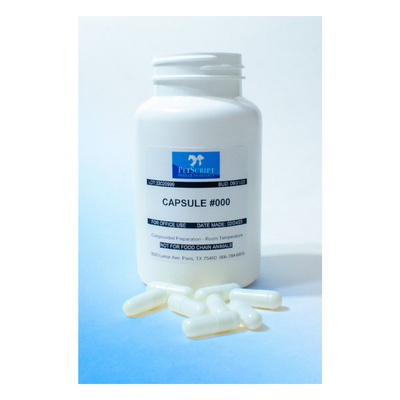fenbendazole: Potential Risks Pet Owners Must Watch For
Wiki Article
Understanding the Perks and Uses of Fenbendazole in Veterinary Medication
Fenbendazole has actually established itself as a crucial anthelmintic in vet medicine. Its capability to target various parasitical infections makes it an important tool for vets. The medication's device interrupts vital cellular procedures in bloodsuckers, resulting in efficient therapy outcomes. However, its safety profile differs between species, necessitating mindful consideration in its use. Recognizing these dynamics can clarify fenbendazole's broader ramifications in veterinary treatment and recurring study right into its possible beyond standard applicationsSystem of Action of Fenbendazole

Typical Parasitical Infections Treated With Fenbendazole
A selection of parasitic infections are successfully treated with fenbendazole, making it a flexible choice in veterinary medication. This anthelmintic agent is particularly reliable against nematodes, consisting of roundworms and hookworms, which commonly impact pets and cats. It is also used for the therapy of cestodes, such as tapeworms, supplying a broad range of activity versus both types of digestive tract parasites. In addition, fenbendazole is helpful in handling infections brought on by protozoa, particularly Giardia, which can lead to stomach distress in animals. Its efficiency extends to treating certain lungworms in canines and felines, resolving breathing health and wellness issues connected to these parasites. Generally, fenbendazole's capability to target numerous parasitic types makes it a valuable device in veterinary technique, guaranteeing the health and wellness and well-being of animals impacted by these usual infections.Security and Efficiency in Various Pet Variety
The safety and efficiency of fenbendazole vary amongst different pet species, highlighting the value of species-specific factors to consider in vet medicine. In pooches, fenbendazole is generally well-tolerated and effective versus a series of stomach parasites, consisting of roundworms and hookworms. For felines, nonetheless, its use is less usual and may need mindful application because of prospective damaging reactions.In animals, such as cattle and lamb, fenbendazole demonstrates efficiency versus various endoparasites, adding to boosted wellness and performance. However, the pharmacokinetics and potential side impacts can vary markedly in between types, requiring mindful analysis by vets.
Horses also respond favorably to fenbendazole, especially for treating strongyles and ascarids, though dose and administration routes must be tailored to their one-of-a-kind physiology. Comprehending these differences is crucial for optimizing therapy results and guaranteeing animal well-being throughout varied varieties.
Management and Dosage Guidelines
Appropriate administration and dose guidelines are important for making best use of the therapeutic results of fenbendazole while minimizing possible negative effects. The dose commonly differs depending on the species being treated, the certain condition, and the solution of fenbendazole utilized. fenbendazole capsules. For canines and pet cats, an usual dose is 50 mg/kg body weight, provided daily for 3 consecutive days, however vets might adjust this based upon specific health assessmentsIt is crucial to carry out fenbendazole with food to improve absorption and reduce gastrointestinal distress. The drug is offered in various kinds, including granules and paste, permitting adaptable management choices. Keeping track of the animal's action throughout and after therapy is advisable to verify effectiveness and safety and security. In addition, vet support is essential to establish the suitable period of therapy based on the kind of parasitical infection being addressed, guaranteeing suitable results for the pet's wellness.
Future Point Of Views and Study on Fenbendazole
Study on fenbendazole remains to progress, focusing on its possible applications beyond conventional antiparasitic usages. Current researches fenbendazole have discovered its performance in treating numerous types of cancer cells, particularly in veterinary oncology. Preliminary data recommend that fenbendazole may prevent the growth of growth cells and enhance the results of various other chemotherapeutic representatives.Researchers are investigating its function in taking care of stomach conditions in pets, highlighting its anti-inflammatory residential properties. The adaptability of fenbendazole for various types questions about its safety and security accounts and suitable dosing regimens in diverse populations.
As rate of interest expands, there is a requirement for thorough medical tests to develop evidence-based standards for these novel applications. Future research study may additionally explore the systems behind fenbendazole's impacts, potentially leading the method for innovative restorative techniques in vet medicine. The recurring exploration of fenbendazole can greatly improve therapy alternatives for various vet conditions.

Often Asked Inquiries
Is Fenbendazole Safe for Pregnant Animals?
The safety and security of fenbendazole for expecting pets remains unsure. While some research studies recommend marginal risk, veterinarians usually suggest caution and commonly discourage its use throughout maternity unless the advantages plainly surpass prospective dangers.Can Fenbendazole Be Utilized in Livestock?
Fenbendazole is commonly made use of in livestock to treat different parasitical infections. fenbendazole 444. Its efficacy against gastrointestinal worms makes it a beneficial anthelmintic, adding to boosted wellness and productivity in animals raised for food and fiberWhat Are the Negative Effects of Fenbendazole?

The adverse effects of fenbendazole may consist of intestinal disruptions, lethargy, and allergies. In unusual situations, much more serious reactions could take place, demanding careful tracking and appointment with a vet throughout treatment.
Exactly How Does Fenbendazole Contrast to Other Dewormers?
Fenbendazole provides broad-spectrum efficacy against numerous parasites, frequently contrasting favorably to various other dewormers. Its distinct mechanism targets different life stages, making it efficient, while usually offering a favorable security profile compared to options offered on the market.Can Fenbendazole Be Utilized for Dealing With Cancer Cells in Pet Dogs?
The capacity of fenbendazole in dealing with cancer cells in family pets has garnered rate of interest. Initial studies suggest it may hinder cancer cells cell development, however better research study is required to confirm its efficacy and security in vet oncology.Report this wiki page